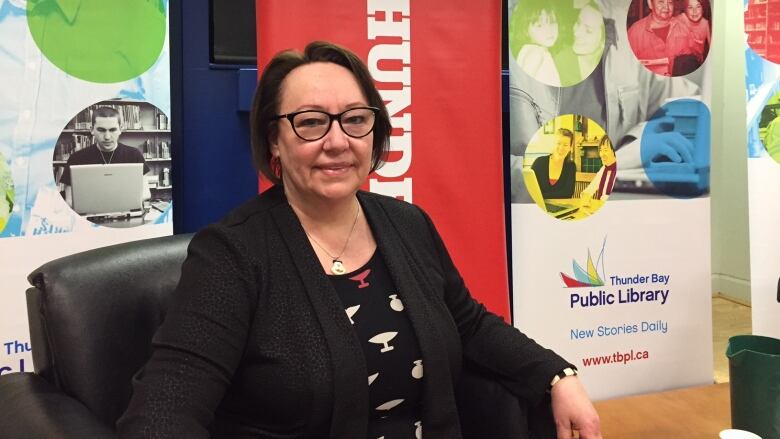'The Right to Be Cold' a 'no-brainer' as a human rights issue says climate change activist
'Fall back in love with nature and with our planet' urges Canada Reads finalist Sheila Watt-Cloutier

Nobel Peace Prize nominee and longtime Inuk activist Sheila Watt-Cloutier brought a message of hope, perseverance and the need to work together to a packed house at the Waverley Resource Library auditorium in Thunder Bay, Ont. on Wednesday night.
Watt-Cloutier was in the northwestern Ontario city to discuss her memoir The Right to Be Cold, a finalist for this year's Canada Reads debates on CBC Radio, beginning on Monday March 27.
She spoke passionately about the decision to make the fight against climate change and the threat it poses to the polar regions more than just another environmental concern.
"To make it a human rights issue was a no-brainer for me," she said.
"Whether or not we won wasn't going to be the ultimate goal. I'm a strong believer in the journey is the destination ... and that the power is in the attempt."

The United Nations now regularly declares that climate change is a human rights issue, and Watt-Cloutier takes pride in "helping to change the discourse on the issue," but she reminded the crowd of about 70 people that there is much work left to do.
"I think it's time that we use this opportunity of this planet of ours that's in deep trouble to come together on common ground and realize that we are common humanity, and that's what keeps me going."
When asked what people could do to force more action on climate change, Watt-Cloutier asked them to look inside at their own attitudes and values.
"My message to the urban setting is to say 'fall back in love with nature and with our planet' because that will help us champion this issue together, with or without the politicians," she said.
"It's that disconnect that urban settings have had between themselves, their food source, their connection to nature that we are even debating this issue of climate change in the first place."












_(720p).jpg)


 OFFICIAL HD MUSIC VIDEO.jpg)
.jpg)



























































































